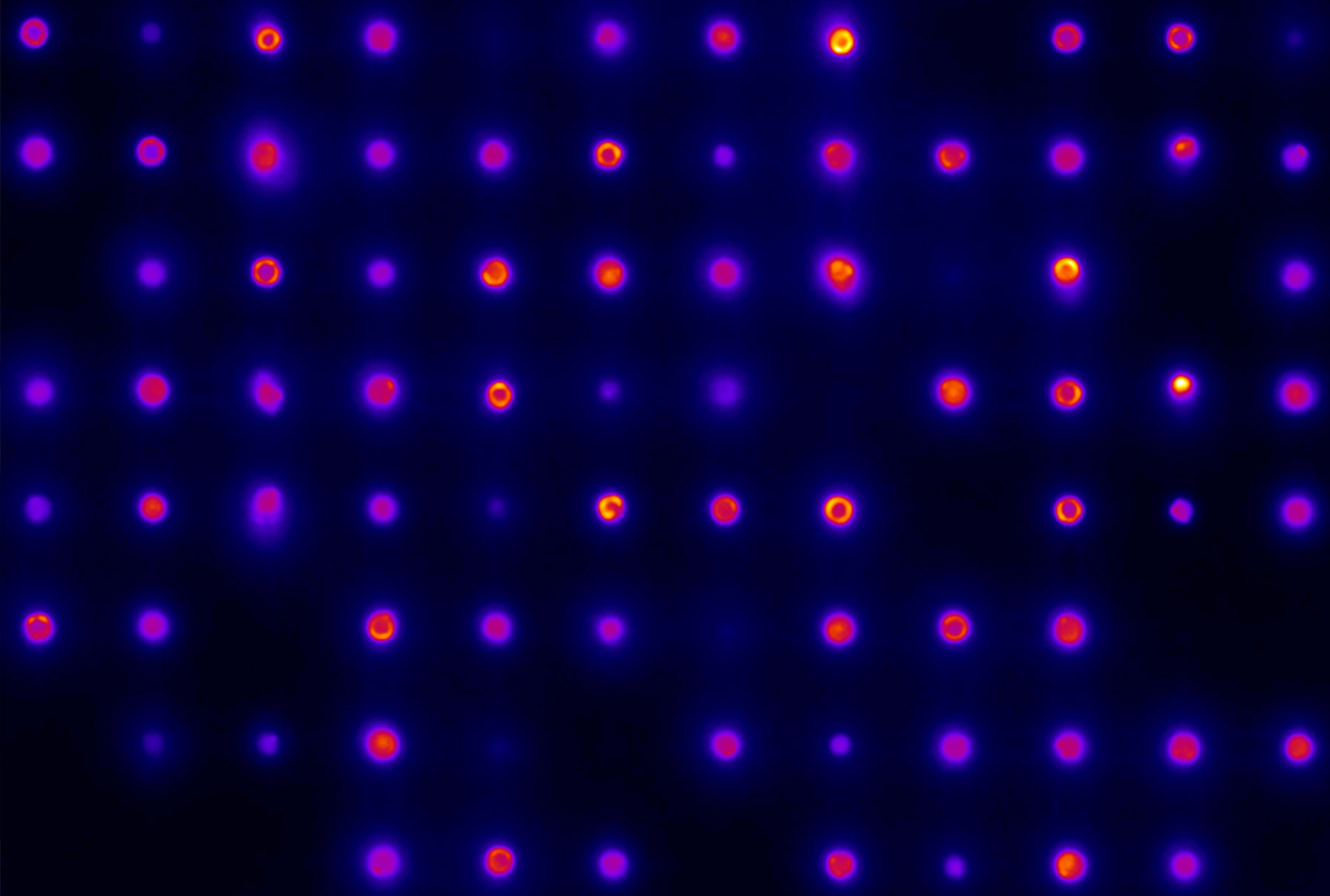Molecular and Cellular Microbiology
Microorganisms play critical roles in all major aspects of life on earth.
Microorganisms play critical roles in all major aspects of life on earth. They are by far the most abundant and diverse free-living organisms. They play central roles in human health, infectious diseases and global ecology. Microorganisms can be engineered as valuable tools for medical, biotechnological and industrial applications.
Our theme is built around the world-class Centre for Bacterial Cell Biology. We are a collaborative community with a common passion for research and learning about microorganisms. We have assembled a critical mass of researchers with expertise spanning:
- cell biology
- molecular genetics
- biochemistry
- structural biology
- bioinformatics
In addition to the CBCB, our theme works closely with researchers in:
- Microbes in Health and Disease
- Molecular Mechanisms of Life
- School of Dental Sciences
Our research benefits from high quality in-house facilities and technical expertise. In particular:
We aim to discover the mechanisms underpinning microbial processes such as:
- DNA replication
- Transcription and translation
- Cell growth and division, bacterial cytoskeleton
- Physical principles of cellular processes
- Cellular/spatial organisation of a bacterial cell
- Cell membranes - organisation, function and biosynthesis
- Bacterial cell wall structure and biosynthesis
- Microbial protein secretion
- Bioinorganic chemistry - structure and function of metalloenzymes
- Bacterial and fungal pathogenesis
- Early evolution, Tree of Life
Research Impact
Our impact can be seen through our high calibre publications in Nature, Science and Cell. Professors Martin Embley and Jeff Errington are Fellows of the Royal Society. Several Theme members have been elected to the American and European Academies of Microbiology, and the European Molecular Biology Organization.
Our research impacts a broad range of real-world applications:
- Antibiotic drug discovery and mode of action
- Biotechnology: production of industrial enzymes and metabolites.
Bacterial Cell Biology
We have pioneered the study of bacteria using single cell approaches more commonly used in the context of larger eukaryotic cells. We continue to work at the forefront of this rapidly advancing field worldwide.
We have access to cutting-edge microscopic techniques including single molecule and super resolution fluorescence microscopy. Our research on the fundamental biology of bacterial cells is essential to decipher how antibiotics inhibit and kill bacteria.
Contacts
Bacterial Cell Biophysics
Molecular Mycology
Fungi regulate their growth and morphology in response to nutrient availability. We are interested in nutrient transporters that act as sensors to control fungal morphology. During host infection certain fungal pathogens undergo morphological changes. We investigate the link between these morphological changes and nutrient sensing.
Our fungal model organisms are the yeast species Saccharomyces cerevisiaehuman pathogen Cryptococcus neoformans and the wheat pathogen Zymoseptoria tritici.
Biochemistry, Molecular Biology, Genetics
Our members study the molecular mechanisms of key physiological processes in microorganisms. DNA replication, transcription and translation are amongst the most fundamental and conserved processes in nature. Despite their importance there are many remaining questions around them. These centre on the machineries facilitating these processes, and their regulation.
Another important research topic is the structure of the bacterial cell envelope, its biogenesis during growth and cell division, and cell envelope transport processes.
Contacts
Structural Biology
This area encompasses five research groups. They are supported by a state-of-the-art facility with over 50 users. We have a strong focus on structural microbiology. Three research groups have interests in bacterial organisms. Our topics range from human pathogens to gut microbiota and synthetic applications.
We are world-leading in cancer structure-based drug discovery. Our facilities enable study of these mechanisms at a structural and molecular level. Our expertise has led to over 50 high quality publications over the last five years. We have secured significant funding through productive collaborations across our Faculty and University.
Contacts
Antibiotic Discovery
Newcastle houses exceptional expertise in research on bacterial cell structure and function. Providing an excellent foundation from which to focus efforts to find new antibiotics. Small chemical compounds that are selectively toxic for bacteria over humans.
Researchers work on bacterial functions that are potential targets for new antibiotics. These include, bacterial chromosomes, cell walls and the transcriptional machinery. Our work on new antibiotics is published in high profile papers and patented. Our biotech spin-out company, Demuris Ltd, discovers and develops new antibiotics.
Contacts:
Computational and Molecular Evolution
Our interests in computational molecular evolution range widely. They include studies on the origin and relationships between the major groups of life. We also study the origins and fundamental features of eukaryotic organelles.
We investigate genome evolution and the origins of biosynthetic pathways. We are interested in cell features of biomedical and industrial importance. Work on the evolution of protein function includes work on the ancestral reconstruction of transport proteins. These are used by ubiquitous obligate intracellular parasites to exploit animal and human cells.
Our research uses sophisticated methods of statistical inference, modern bioinformatics and next generation whole genome sequencing.
Contacts
Research Culture
We contribute to undergraduate and postgraduate teaching in the School of Biomedical, Nutritional and Sport Sciences. As well as courses at our NUMed campus in Johor, Malaysia. We offer research projects for undergraduate and master students.
We have a number of opportunities for PhD projects. We provide rigorous training for the next generation of microbiologists and have a thriving PhD cohort.
Education lead: Alistair Brown
EDI lead: Kevin Whitley
